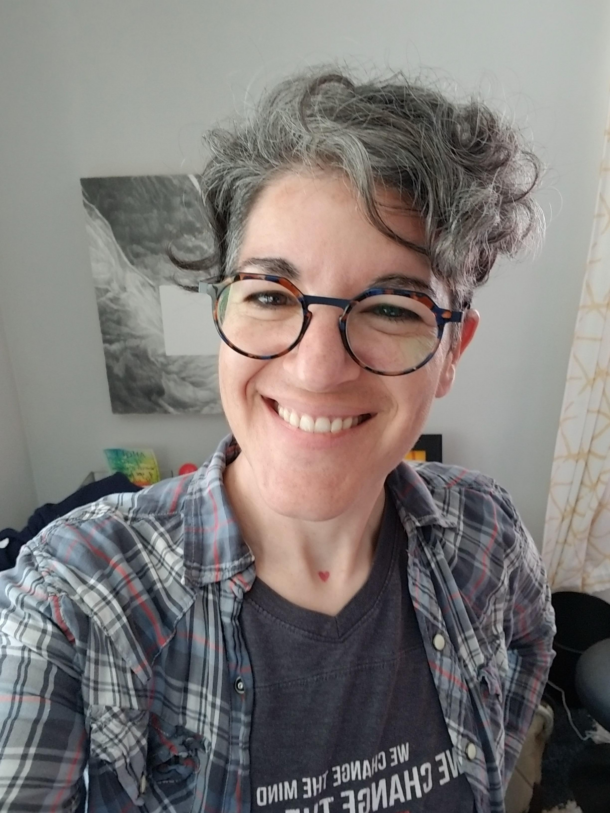Earlier this month, my nephew turned 22. I sent him a voice recording of me starting to sing Yellow Submarine, catching myself, then singing the five-second micro-Happy Birthday Song.
A few hours later, he sent me a text saying he had been at work when he got my recording so it was only then that he could listen to it but he had, of course, known exactly what it was when he saw it. Of course he did: it’s our tradition. We sing Yellow Submarine and have since he was a wee guy. We’ve been singing this brief birthday song almost as long.
There’s a pleasure that can come from traditions. He didn’t have to listen to the recording because this is what we do, this particular We.
We in the States are heading into our season of traditions. Many of us know exactly where we’ll be this Thursday. We’re likely to also have a sense of what we’ll be eating and with whom. We might even be able to anticipate things like the kinds of conversations we have and the kinds of activities we’ll do.
These traditions can be a welcome respite from the unknowing that fills so many of our days, the countless decisions that make up our lives. What will we eat? Who will we interact with? How will we spend our time? For some, the holiday traditions may be so well-established that the only decision left to make is whether it’s too soon to get out a favorite ugly Christmas sweater. What a relief.
It’s understandable, then, that the reevaluation of traditions makes a lot of people pretty doggone uncomfortable. Something in us instinctively, reactively, fears that acknowledging the murderous roots of Thanksgiving will diminish the joy of baking with a grandparent, touch football with cousins, or the annual delight of the youngest ones making a game of seeing how much they can poke at Uncle Earl without waking him from a turkey-induced coma.
We crave a greater simplicity than these lives of ours allow and, ultimately, an honest reckoning of this holiday’s history invites us to be in the complexity, in the both/and.
European colonists caused, directly and indirectly, the deaths of tens of millions of Native people and I look forward to turkey sandwiches every year.
The Thanksgiving holiday was established by President Lincoln as a bit of nice-nice propaganda after he ordered the hanging deaths of 38 Dakota men who were protesting an enforced starvation of their people and it’s always a pleasure to watch the kids romp in the yard, cousins connecting with one another while babies look on and imagine their turn to come.
Native peoples on this continent continue to struggle with the fallout from what profiteers and colonists started centuries ago – extraordinary disadvantage, racism, and poverty – and we can be thankful for our friends, our families, our communities.
Of course, this isn’t just about Thanksgiving. Last year, a friend of mine said that he’s concerned about revisiting the stories of America’s Founding Fathers. It sounded to me as though he feared that acknowledging that most of them – and nearly half of the signers of the Constitution – owned humans as slaves would somehow act as a time machine set on returning the likes of Nikole Hannah-Jones to the past with a match and a thirst for quill-marked parchment.
It takes courage to be with the complexity, with the both/and, with the reality of our gruesome imperfection as a species and our ability to still, even still, experience joy, pleasure, hope, and possibility – and to use these as the fuel to do better, always better.
The both/and isn’t just an opportunity on the community scale – it lives within you, too. If you’re curious about using your courage to explore your inner both/and, I’m eager to talk with you.
